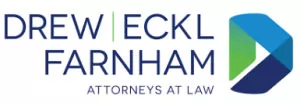In September 2021, President Biden directed the Occupational Safety and Health Administration (OSHA) to develop a new Emergency Temporary Standard (ETS) to help combat the ongoing COVID-19 pandemic. We anticipate that the ETS will be issued in mid-to-late October 2021.
In addition to containing requirements for federal workers and certain federal contractors, the ETS will require private employers with more than 100 employees to require that their employees either be fully vaccinated – or subject to weekly testing.
It is anticipated that the ETS will impact up to 80 million private sector employees. Employers will have 30 days from the date of issue to comply with the ETS, which will be effective upon publication and remain in effect for six months.
As we have seen in Texas in recent days, legal challenges to the ETS are inevitable. Many details of the ETS remain unclear, including how employees will be aggregated to meet the 100-employee threshold, requirements for remote workers, what types of testing options will be available, and how requests for disability and religious accommodations should be handled.
While we await direction from OSHA, there are several issues that employers should consider now to try to get in front of the inevitable logistical challenges the ETS will create:
- Identifying vaccinated versus unvaccinated employees: Will this be done by HR – or someone else in your organization? Who will verify vaccination, and what proof will be acceptable?
- Weekly testing in lieu of vaccination: Who will pay for it? Should you allow PTO for employees to get vaccinated off-site? Should you provide on-site testing?
- Employee refusal: What process will you use to evaluate the anticipated numerous religious and disability accommodation requests? Or employees who flatly refuse to get vaccinated (or tested)?
Legal challenges, coupled with the intense workload that the ETS will impose on OSHA, likely mean that any penalties for noncompliance are a bit down the road. But now is a good time to start thinking about your processes and procedures for how your organization will respond to the ETS.
The content of this article is intended to provide a general guide to the subject matter. Specialist advice should be sought about your specific circumstances.

